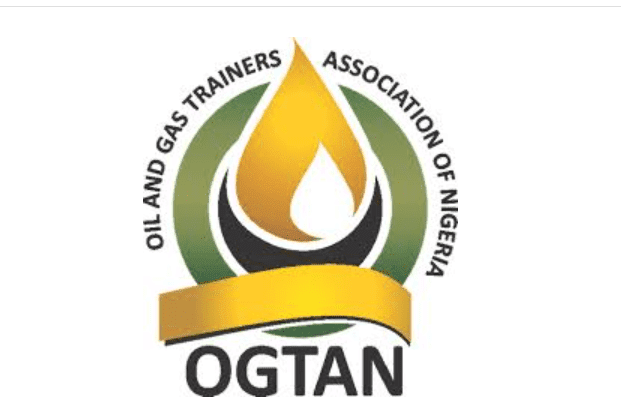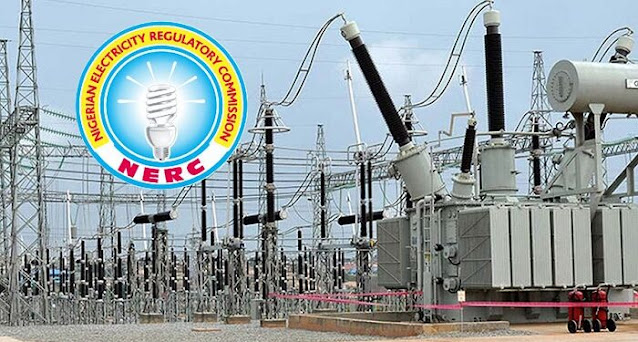In a significant step toward strengthening its operational capabilities and enhancing service reliability, RwandAir, the national carrier of Rwanda, has announced the addition of two Boeing 737-800 aircraft to its fleet in August 2025. One of these aircraft is already in service, with the second expected to commence operations shortly. This expansion comes as part of a broader strategy to address recent technical disruptions, reduce flight delays, and reinforce RwandAir’s position as a leading airline in African aviation. The airline also anticipates the delivery of a third aircraft and a wide-body Airbus A330-200 in the fourth quarter of 2025, further solidifying its commitment to modernizing its fleet and expanding its regional and international reach.
A Strategic Move to Restore Reliability
RwandAir’s acquisition of the two Boeing 737-800s marks a pivotal moment for the airline, which has faced challenges in recent months due to technical issues that grounded several aircraft. These disruptions led to schedule adjustments and cancellations, impacting passengers and straining the airline’s reputation for reliability. The delivery of the new aircraft, combined with the return of previously grounded planes to service, signals a turning point in RwandAir’s efforts to stabilize its operations and deliver a seamless travel experience.
The Boeing 737-800s, each configured with 12 Business Class seats and 162 Economy Class seats, are designed to serve short- and medium-haul routes across Africa and beyond. Their addition enhances RwandAir’s capacity to meet growing demand on key regional routes, such as those connecting Kigali to Nairobi, Lagos, Johannesburg, and Dubai. The airline’s decision to invest in these aircraft reflects a strategic focus on operational resilience, as the new planes are expected to reduce delays and cancellations while improving schedule adherence.
RwandAir’s Chief Executive Officer, Yvonne Makolo, expressed optimism about the fleet expansion and its impact on the airline’s performance. “We are thrilled to welcome these new aircraft to our fleet and to have resolved the technical challenges that affected our schedules in recent weeks,” she said. “Our customers’ patience during this period has been invaluable, and we sincerely apologize for any disruptions to their travel plans. With a strengthened fleet, we are confident in our ability to deliver a more reliable and exceptional travel experience.” Makolo’s statement underscores the airline’s commitment to prioritizing passenger satisfaction and operational excellence.
Addressing Recent Challenges
The past few months have been challenging for RwandAir, as technical issues sidelined several aircraft, reducing the airline’s operational capacity. These disruptions forced RwandAir to adjust its schedules, leading to delays and cancellations that affected passengers across its network. The situation tested the airline’s resilience and highlighted the importance of maintaining a robust and modern fleet to meet the demands of a growing customer base.
The return of serviced aircraft to operation, combined with the arrival of the new Boeing 737-800s, has alleviated these challenges. RwandAir’s swift response to the crisis, including its investment in new aircraft, demonstrates a proactive approach to addressing operational setbacks. By resolving the technical issues and bolstering its fleet, the airline is positioning itself to regain passenger confidence and strengthen its reputation as a reliable carrier.
The addition of the Boeing 737-800s is particularly timely, as it coincides with RwandAir’s efforts to expand its route network and enhance connectivity across Africa and beyond. The airline has recently announced new services to Mombasa, Kenya, and Zanzibar, Tanzania, set to commence in December 2025. These routes reflect RwandAir’s ambition to position Kigali as a key aviation hub, facilitating seamless travel between African destinations and global markets. The new aircraft will play a crucial role in supporting these expansions, ensuring that RwandAir can meet the increased demand for travel while maintaining high standards of service.
A Vision for Growth and Connectivity
RwandAir’s fleet expansion is part of a broader strategy to modernize its operations and strengthen its role in African aviation. The airline, which currently operates a fleet of 16 aircraft, including Boeing, Airbus, and Bombardier models, aims to increase its fleet size to 21 by 2029. This ambitious goal aligns with RwandAir’s vision to boost passenger traffic from just over one million in 2023 to more than 2.1 million within the next five years. The addition of the Boeing 737-800s and the forthcoming Airbus A330-200, a wide-body aircraft designed for long-haul routes, will significantly enhance the airline’s capacity to achieve these targets.
The Airbus A330-200, expected in the fourth quarter of 2025, will bolster RwandAir’s long-haul operations, enabling the airline to expand its reach to global destinations such as London, Paris, and Dubai. This wide-body aircraft, known for its fuel efficiency and passenger comfort, will complement RwandAir’s existing long-haul fleet, which includes an Airbus A330-300 and a Boeing 787-8 Dreamliner. By investing in both narrow-body and wide-body aircraft, RwandAir is positioning itself to cater to a diverse range of routes, from regional connections within Africa to intercontinental flights linking the continent to the world.
RwandAir’s focus on fleet modernization also reflects its commitment to sustainability. The aviation industry faces increasing pressure to reduce its carbon footprint, and African carriers are no exception. While the Boeing 737-800 is not the newest model in Boeing’s portfolio, it offers improved fuel efficiency compared to older aircraft still in use across the continent. Similarly, the Airbus A330-200 is recognized for its efficiency on long-haul routes, making it a strategic addition to RwandAir’s fleet. These investments align with global trends toward greener aviation and demonstrate RwandAir’s efforts to balance growth with environmental responsibility.
The Broader Context: African Aviation Challenges
RwandAir’s fleet expansion comes at a critical time for African aviation, which faces unique challenges and opportunities. Despite being home to over 1.4 billion people, Africa accounts for only a small fraction of global air traffic, with intra-African connectivity remaining a significant barrier to economic integration. High operating costs, limited infrastructure, and regulatory hurdles have historically constrained the growth of African airlines. For many carriers, maintaining a modern and reliable fleet is a key challenge, as older aircraft are more prone to technical issues and less fuel-efficient, leading to higher costs and reduced reliability.
RwandAir’s investment in new aircraft addresses these challenges head-on, positioning the airline as a leader in the push for improved connectivity. By expanding its fleet and modernizing its operations, RwandAir is not only enhancing its own capabilities but also contributing to the broader goal of making African aviation more competitive. The airline’s strategic focus on Kigali as a regional hub further supports this mission, as it facilitates seamless connections between African cities and global destinations.
The addition of new aircraft also has economic implications for Rwanda and the region. Air travel plays a critical role in driving tourism, trade, and investment, all of which are vital for economic growth. By improving reliability and expanding its route network, RwandAir is creating opportunities for businesses, tourists, and travelers, strengthening Rwanda’s position as a gateway to East Africa and beyond. The airline’s growth is expected to create jobs, both directly within the aviation sector and indirectly through increased economic activity, further contributing to Rwanda’s development.
RwandAir’s Commitment to Passenger Experience
At the heart of RwandAir’s fleet expansion is a commitment to enhancing the passenger experience. The Boeing 737-800s are equipped with modern amenities, including comfortable seating and in-flight entertainment, designed to provide a superior travel experience on short- and medium-haul routes. The forthcoming Airbus A330-200 will offer similar enhancements for long-haul passengers, with spacious cabins and advanced technology to ensure comfort and convenience. These improvements reflect RwandAir’s dedication to meeting the expectations of its growing customer base, which includes both leisure and business travelers.
CEO Yvonne Makolo emphasized the importance of passenger satisfaction in her statement, acknowledging the disruptions caused by recent technical issues and pledging to prevent similar challenges in the future. “Our passengers are at the core of everything we do,” she said. “The arrival of new aircraft and the return of serviced planes to operation will allow us to deliver the reliable, high-quality service that our customers deserve.” This focus on customer-centric operations sets RwandAir apart in a competitive industry, where reliability and service quality are key differentiators.
RwandAir’s efforts to improve the passenger experience extend beyond its fleet. The airline has invested in training its staff, upgrading its digital platforms, and enhancing its loyalty program to ensure a seamless travel journey from booking to arrival. These initiatives, combined with the fleet expansion, position RwandAir to compete with larger carriers while maintaining the personalized service that has become its hallmark.
Looking Ahead: A Bright Future for RwandAir
As RwandAir prepares for the arrival of its third aircraft and the Airbus A330-200 later in 2025, the airline is well-positioned to achieve its long-term goals. The fleet expansion is a critical component of RwandAir’s strategy to grow its market share, expand its route network, and solidify Kigali’s status as a regional aviation hub. By 2029, the airline aims to operate a fleet of 21 aircraft, serving a significantly larger passenger base and connecting more destinations across Africa and the world.
The upcoming matches against South Sudan and Senegal in the 2026 World Cup qualifiers may seem unrelated to RwandAir’s operations, but they highlight the broader context of Rwanda’s growing influence in African and global affairs. Just as the Leopards aim to make history on the football pitch, RwandAir is striving to make its mark in the aviation industry, carrying the hopes of a nation eager to showcase its potential.
RwandAir’s journey is not without challenges. The airline operates in a highly competitive industry, where global carriers and regional rivals vie for market share. Economic uncertainties, fluctuating fuel prices, and geopolitical factors could impact its growth trajectory. However, RwandAir’s proactive approach to fleet modernization, operational efficiency, and customer satisfaction positions it to navigate these challenges successfully. The airline’s focus on sustainability, innovation, and connectivity aligns with global trends, ensuring its relevance in an ever-evolving industry.
The Role of Leadership in RwandAir’s Success
The leadership of CEO Yvonne Makolo has been instrumental in guiding RwandAir through its recent challenges and positioning it for future success. Since taking the helm, Makolo has prioritized fleet modernization, operational efficiency, and customer satisfaction, earning praise for her strategic vision and hands-on approach. Her ability to navigate the complexities of the aviation industry while maintaining a focus on Rwanda’s economic goals has made her a respected figure in African business circles.
Makolo’s leadership extends beyond RwandAir’s operations, as she serves as an advocate for African aviation on the global stage. Her emphasis on collaboration with other carriers, investment in technology, and commitment to sustainability reflects a forward-thinking approach that resonates with stakeholders. Under her guidance, RwandAir is not only addressing immediate operational challenges but also laying the foundation for long-term growth and impact.
Conclusion
RwandAir’s acquisition of two Boeing 737-800s and its plans for further fleet expansion in 2025 mark a significant milestone in the airline’s journey to become a leading force in African aviation. By addressing recent technical disruptions, improving reliability, and expanding its route network, RwandAir is demonstrating its commitment to excellence and connectivity. The addition of the Airbus A330-200 later this year will further enhance the airline’s long-haul capabilities, positioning Kigali as a vital hub for intra-African and international travel.
As RwandAir looks to the future, its focus on modernization, sustainability, and passenger satisfaction sets it apart in a competitive industry. The airline’s efforts to overcome challenges and seize opportunities reflect the resilience and ambition of Rwanda as a nation. With a strengthened fleet, a dedicated leadership team, and a clear vision for growth, RwandAir is poised to soar to new heights, carrying the aspirations of its passengers and the pride of a nation.






